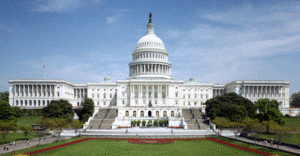By Amanda Becker, Reuters–
The tax overhaul pushed by President Donald Trump and fellow Republicans is prompting a slew of attack ads by Democrats and progressive groups that say the legislation would lavish benefits on corporations and the rich, while harming the middle class.
One ad launched on Tuesday warns that the Republican tax plan would leave Maine residents “lost in the wilderness” as it pans through a dark, deserted forest.
The television spot, paid for by the group Not One Penny, urges the state’s Republican senator, Susan Collins, who is undecided on the plan and whose vote could help decide its fate in the Senate, “not to lose her way.”
Another Not One Penny ad in Nevada, where Republican Senator Dean Heller faces a tough re-election race next year, says that the Senate plan is “a tax break for billionaires and wealthy corporations, paid for by higher taxes on every day Nevadans.”
Republicans are looking to pass tax legislation within the next few weeks. Groups spending millions on the ads are aiming to sway public opinion in the final stretch of debate over the legislation, which would cut the corporate tax rate to 20 percent from 35 percent, and reduce individual income tax rates.
Liberals see criticism of the tax plan as a potent issue for the 2018 U.S. congressional elections, when all 435 House seats are up for re-election, along with 33 in the Senate.
The House of Representatives passed its tax bill last week. The Senate plans to vote once lawmakers return to Washington after this week’s U.S. Thanksgiving holiday. Republicans are under pressure to deliver a tax bill to score their first major legislative achievement since taking control of the White House and both chambers of Congress in January.
TARGETING VULNERABLE REPUBLICANS
Many Democratic ads focus on Republicans thought to be vulnerable in the 2018 elections. Others target Republicans such as Collins in the Senate, where Republicans have a slim 52-48 majority and can afford to lose just two Republican votes and still pass a tax bill, with Democrats united in opposition.
Republicans say their tax plans would provide across-the-board cuts for both businesses and middle-class workers, along with tax code simplifications that would make it easier for individual taxpayers to file.
Republican tax writers contend their plan would mean a “typical family of four would see their tax bill drop by nearly 60 percent.”
But Democrats say Republicans have used as a model a family with a specific set of tax circumstances, and that other families at similar income levels could end up paying more.
Both the House and Senate plans cut individual tax rates but
eliminate popular deductions. In the Senate plan, the tax rate cut for individuals is temporary, while the corporate rate cut is permanent. The Senate plan would repeal a key provision of the Affordable Care Act that requires individuals to pay a penalty if they do not have health insurance.
The nonpartisan Joint Committee on Taxation has estimated that the Senate bill would, beginning in 2021, lead to higher tax bills on average for households earning $10,000 to $30,000 annually. By 2027, most taxpayers earning $75,000 or less annually would be paying more taxes, the JCT said.
Democratic advocacy group Priorities USA on Tuesday increased to $2 million a tax-related digital ad campaign targeting voters in 20 House districts where Republicans voted for the House bill. It also plans ads in states represented by Senate Republicans Collins (Maine), Heller (Nevada), John McCain (Arizona), Bob Corker (Tennessee) and Lisa Murkowski (Alaska).
The Democratic Congressional Campaign Committee is running digital ads in more than 40 Republican-held House districts. The group Save My Care is running digital ads in the districts of 14 House Republicans who voted for the bill, and in Alaska, Arizona and Maine.
Republican and conservative groups are running ads of their own. The National Republican Congressional Committee started running spots in multiple districts last week promoting the tax bill. America First Policies, a nonprofit run by former Trump campaign advisers, is spending $135,000 this week for spots on conservative radio programs.
Reporting by Amanda Becker; Editing by Caren Bohan and Peter Cooney


Leave A Comment
You must be logged in to post a comment.